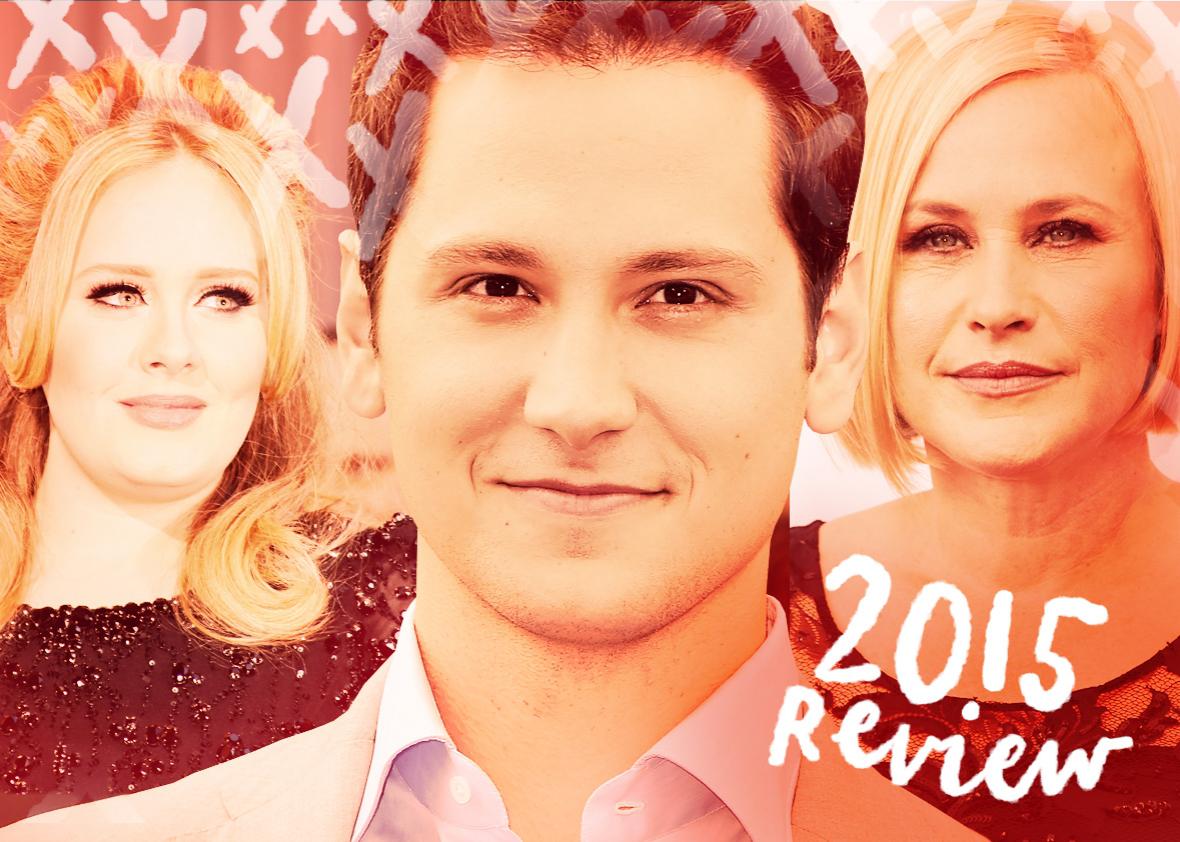In this series, Double X writers look back on 2015’s flashpoint debates around gender and feminism as they played out in the spheres of reproductive rights, work-life balance, pop music, affirmative consent on campus, and more. Read all the entries here.
Carly Fiorina spent 2015 trying to “reclaim” feminism from the left. In a speech in June, the GOP presidential candidate accused liberals of defining the term to suit their political needs. “Feminism began as a rallying cry to empower women—to vote, to get an education, to enter the workplace,” Fiorina said. “But over the years, feminism has devolved into a left-leaning political ideology where women are pitted against men and used as a political weapon to win elections.”
What is a feminist, by Fiorina’s estimation? “A woman who lives the life she chooses.” Fiorina chooses to advocate against equal pay legislation and access to reproductive health care. In her mind—or at least, in her talking points—she is a feminist.
Outside the world of politics, we saw a good bit of celebrity scrabbling over the meaning of feminism in the past year or so. “I am not a feminist,” Salma Hayek told People in November 2014; by March, she’d changed her mind. “I am a feminist because I love women and I am ready to fight for women,” she told the Guardian. Marion Cotillard revealed in September that she’s still struggling with the concept. “I don’t qualify myself as a feminist. We need to fight for women’s rights but I don’t want to separate women from men,” she said. “We’re separated already because we’re not made the same and it’s the difference that creates this energy in creation and love.”
With no settled-upon definition of the term, why should we care what famous people have to say about feminism? Because celebrities can make a formidable impact on public discourse, and their opinions matter to people with money and power. Patricia Arquette used her platform at this year’s Oscars to make an impassioned case for wage equity, but she stumbled backstage: “It’s time for all the women in America and all the men that love women, and all the gay people, and all the people of color that we’ve all fought for to fight for us now,” Arquette said, forgetting that gay people and people of color can also be women. (Arquette apologized in an essay this month.)
If wage inequity was Arquette’s push toward vocal feminism, workplace politics were Adele’s. She recounted her uphill fight to be heard in male-dominated business meetings in a recent Rolling Stone interview. “I’m a feminist,” she told Brian Hiatt unprompted, while “sipping wine.” (In my dream world, every declaration of feminism would be accompanied by a sip of wine.) “I believe that everyone should be treated the same, including race and sexuality.”
This year, the Cut popped the feminist question to 15 men of varying degrees of celebrity, and their proffered definitions were, well, mixed. “A feminist? Of course,” said actor and singer Cheyenne Jackson. “I very much liken it to being a gay man. We have always been like, ‘Hey, what about me?’ It’s the same kind of thing. Little by little it’s coming along.” (Feminism, the “Hey, what about me?” movement!) Salman Rushdie had the best response: “What else is there to be?” he said. “Everything else is being an asshole.”
Plenty of celebrities have tried to sidestep potential feminist or anti-feminist backlash by embracing a broader -ism. “I think the idea of being a feminist is evolving in our world. Especially now, with these movements toward equality of all kinds, I feel like I don’t limit it to feminism—I just sort of consider myself a humanist,” Zachary Quinto told the Cut. Like Susan Sarandon and Madonna before them, Meryl Streep (“I am a humanist, I am for nice easy balance”) and Sarah Jessica Parker aired their support for the entire human race this year. Parker explained herself in Cosmopolitan:
I’m enormously appreciative of the work that my mother’s generation did. We are the beneficiaries of a lot of disappointment, heartache, discouragement, and misunderstanding. But I see a lot of people trying to sort out their roles. People of color, gays, lesbians, and transgenders who are carving out this space. I’m not spitting in the face or being lazy about what still needs to be done—but I don’t think it’s just women anymore. We would be so enormously powerful if it were a humanist movement.
What Parker is talking about sounds a lot like intersectional feminism—which considers the way oppression affects each person based on her whole identity, including race, ability, sexuality, and age—not a brand-new social movement she’s yet to invent.
In an interview with Lena Dunham this October, Hillary Clinton issued a warning to women who reject feminism: “It’s not going to be good for you as a woman to be denying the fact that you are entitled to equal rights.” But one of 2015’s most endearing endorsements of feminism came from a man: Orange Is the New Black and How to Get Away With Murder actor Matt McGorry, who likened his discovery of the movement to falling in love. “You feel like your boundaries are being pushed and your worldview is shifting,” he wrote of the feeling he got after hearing one of Emma Watson’s speeches on men’s roles in feminism. “It’s terrifying, but it’s also one of the most exhilarating and fulfilling emotional states you can know.” McGorry was a vocal ally on social media this year, using his elevated platform to shut down #AllLivesMatter fools and using his own permissible nipples as a foil to expose the absurdity of Instagram’s ban on bare-breasted women. In a year of too many distortions of feminism from women whose voices resonate far beyond their own narrow cosmos, we’ll take our enlightened men where we can get them.
